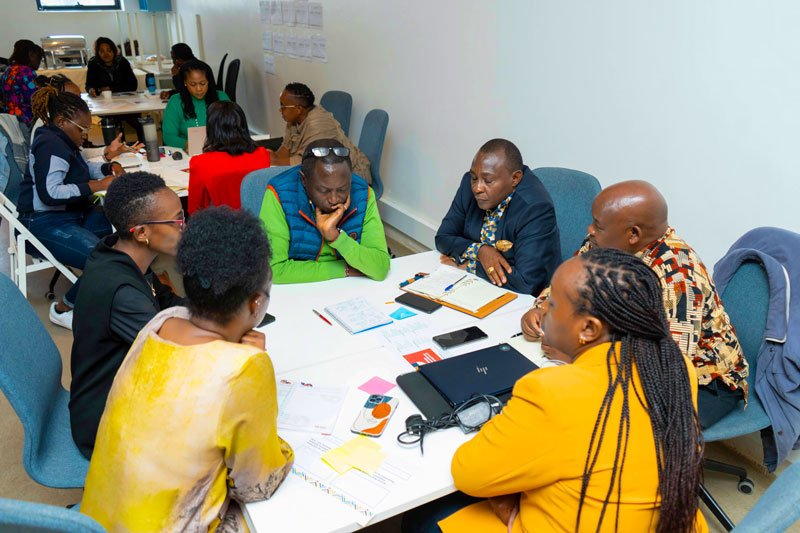

The EdTech ecosystem has complex problems that no single actor can overcome alone. To create sustainable change, we need to address these complexities by working together. Collective impact requires all participants to have a shared vision for change, one that includes a common understanding of the problem and a joint approach to solving it through agreed upon actions.
In Kenya, that shared vision has been defined by the Ministry of Education through the ICT in Education and Training Policy 2021, and was presented to the Kenya EdTech Summit 2022 attendees by Mr. Francis Karanja, Head of National ICT Innovation & Integration Centre, Ministry of Education. Building upon this vision set out by the government, EdTech East Africa co-created and launched the the first edition of Kenya’s Edtech Collective Action Goals in November 2022.

To collaborate most effectively, a coordinated vision and set of goals are essential for all participants to work towards. EdTech East Africa has established the foundation for a collective action agenda by taking into account evidence, ministerial policies and plans, and inputs from our community.
Based on evidence, ministerial policies and plans, and inputs from our community, EdTech East Africa has created the foundation for a collective action agenda. Collective impact requires all participants to have a shared vision for change, one that includes a common understanding of the problem and a joint approach to solving it through agreed upon actions.
Shared vision has been defined by the Ministry of Education and was presented to the Summit attendees by Mr. Francis Karanja – Head of National ICT Innovation & Integration Centre, Ministry of Education (Kenya). In Nov 2022, we launched the the first edition of Kenya’s Edtech Collective Action Goals. We used the government’s guidance to co-create the collective action.
Goal 1
Goal 2
Goal 3
Goal 4
Goal 5
